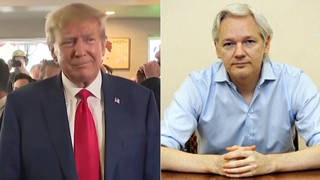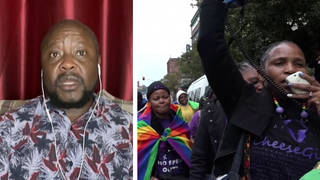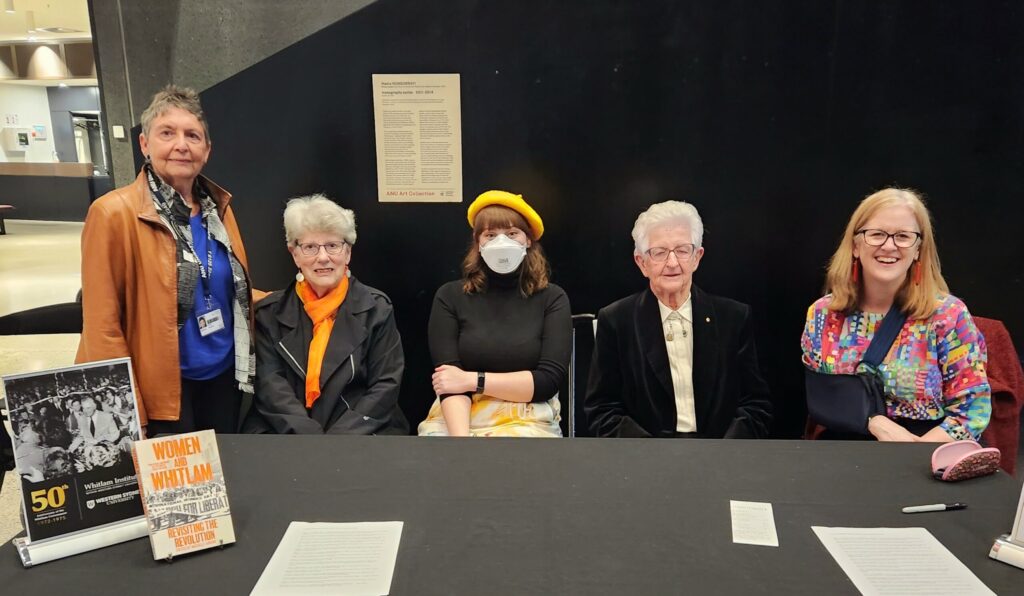This piece analyses two recent decisions of the European Court of Human Rights (ECtHR), A.M. and Others v. Russia[1] and X and Y v. Romania,[2] to highlight the courts’ failure to incorporate rights arising from the Convention on the Elimination of All Forms of Discrimination Against Women (CEDAW)[3] into jurisprudence relating to trans women. CEDAW is a convention adopted by the UN General Assembly in 1979 and is implemented by a body of independent experts titled the Committee on the Elimination of All Forms of Discrimination Against Women. The gap in the CEDAW with respect to trans rights, has an adverse impact on trans women’s custody and guardianship rights. In addition, the piece critiques the doctrine of margin of appreciation. Due to the absence of pervasive domestic legislation and lack of consensus among European nations regarding trans rights, the ECtHR is more likely to concede to the often transphobic discretion of nation-states. To counter the trans-exclusionary impacts of the margin of appreciation, this article proposes a dual approach: the incorporation of specialised treaties into ECtHR jurisprudence as well as the incentivisation of member states to reach an inclusive consensus by the court.
Margin of Appreciation and Self-Recognition in ECtHR
The margin of appreciation is a “judicial doctrine whereby international courts allow states to have a measure of diversity in their interpretation of human rights treaty obligations”.[4] Pre-1998, ECtHR jurisprudence was not trans-sensitive,[5] as it afforded a wide margin of appreciation to states which narrowly interpreted violations against trans individuals under Article 8 of the European Convention on Human Rights (ECHR), which guarantees the right to respect for family and private life. Cases like Rees v. UK;[6] X, Y, and Z v. UK;[7] and Cossey v. UK,[8] did not find Article 8 violations against trans litigants. However, the 1992 B v. France[9] was the first of the pre-1998 cases to recognise an Article 8 violation, when a trans woman complained of the refusal of the French authorities to amend the civil-status register in accordance with her gender identity. Finally, in 1998, Sheffield and Horsham v. the United Kingdom[10] marked a turning point in trans rights jurisprudence. While the ECtHR did not find an Article 8 violation,[11] it reaffirmed the need for trans rights to be kept under permanent review by the Contracting States, given the problems faced by post-operative trans individuals.[12] Unfortunately, the decision did not grant the right to self-identification and did not have implications beyond those undergoing surgery. The decisions post-1998 beginning with the Christine Goodman v. UK[13] in 2002 to Y.V v. Turkey[14] in 2015, recognised Article 8 violations by States and curbed margin of appreciation on the grounds that the resulting interference with the applicant’s right to respect for their private life could not be considered “necessary” in a democratic society.
The ECtHR delivered its most recent pronouncement on trans rights, X and Y v. Romania, on 19th January 2021. Here, two Romanian nationals approached the ECtHR because the national authorities failed to recognise the gender identity of transgender persons in the absence of gender reassignment surgery.[15] The applicants approached administrative and judicial authorities to correct the details on their identity papers concerning their gender, forenames and social security number. The applicants wanted to obtain legal recognition of their gender identity without undergoing expensive and psychologically-taxing surgery.[16] However, these requests were refused on the grounds of absence of ‘proof’[17] of their gender identity through gender reassignment surgery. The ECtHR admitted the application on the grounds that the state violated Article 8 of ECHR.
Article 8 was found to be applicable as the Court found gender identification to be a crucial aspect of personal identity. Further, the Court noted that this applies “to all individuals, including transgender persons like the applicants, whether or not they wish to undergo gender reassignment treatment approved by the authorities.”[18] The case is relevant to the current discussion despite acknowledging the absence of the right to self-identification of the Romanian legal framework, as the court decided against granting a margin of appreciation. The ECtHR’s logic was that the national authorities’ lack of recognition of the applicants’ male identity in the absence of gender reassignment surgery “had upset the fair balance to be struck by the State between the general interest and the interests of the applicants.”[19] This non-recognition constituted unjustified interference with the Article 8 rights of the applicants. The Court’s justification was that only a few Council of Europe member States mandated gender reassignment as a pre-condition for legal recognition of gender identity and highlighted that “by 2020, twenty-six States no longer made it a requirement.”[20] This decision therefore illustrates the wide support for the self-recognition of gender and serves as an important precedent for limiting European States’ margin of appreciation in this context. The case gives rise to the question of whether international courts can deny states’ margin of appreciation and allow international human rights law to fill in gaps in domestic legislation.
Using Self-Recognition of Gender Jurisprudence in ECtHR to Critique Trans Custody Jurisprudence
A.M. and Others v. Russia[21] followed closely at the heels of X and Y v. Romania. A.M. and Others v. Russia involved a transgender woman who was denied custody of her children based on her gender identity. The woman had transitioned after the dissolution of her marriage, after which the Court denied her custody. The applicant contested this decision in the ECtHR under the Article 14 right against discrimination and the Article 8 right to family life. The ECtHR read Articles 8 and 14 together to hold that the applicant’s gender identity had influenced the Court’s decision to restrict contact with her children. This meant that the applicant was treated differently than parents whose gender identity matched their sex assigned at birth. The ECtHR held that although the domestic courts had pursued a legitimate aim of the protection of the rights of children in these proceedings, it could not establish convincing and sufficient reasons for the difference in treatment, such that a reasonable relationship of proportionality had not existed between the means employed and the aim pursued.
In this case, the margin of appreciation was not applicable as there was no conflict between domestic law and international law. However, the X and Y v. Romania case can be used to formulate a minor critique of A.M. and Others v. Russia. This is because interestingly, the recent and significant X and Y v. Romania case was not cited in the Russian transgender woman’s custody case. Had the prior case been cited it would have a two-fold impact for trans-sensitive international human rights jurisprudence. Firstly, although the gender identity of the applicant was not in question in the current case, X and Y v. Romania could be used to reassert the legitimacy of the transgender woman’s gender identity. This leads to the second point. The classification of the applicant as a woman using a recent ECtHR ruling, could entitle her to guardianship rights and protections under Article 16 (e) and (f) of the CEDAW.[22] These provisions could further strengthen her case within the international human rights law regime by enforcing the nation-state’s compliance with its CEDAW treaty obligations. This oversight by the ECtHR demonstrates not just its own reluctance to recognise trans women’s rights as being on par with ciswomen, but also the limitations of CEDAW and its essentialist and rigid definition of the woman subject. The ECtHR thus missed the opportunity to expand the scope of or at least present recommendations for CEDAW to widen its scope, in its failure to read X and Y v. Romania. into A.M. and Others v. Russia.
Conclusion: Way Forward
(i) Incorporation of CEDAW into ECtHR Jurisprudence
The ECHR has been termed a “living instrument” and for more than seven decades, has been a significant instrument in international law.[23] Further, scholars have noted that the relevance, dynamism and effectiveness of the ECHR has been maintained by the ECtHR interpreting it in light of other international human rights documents and jurisprudence.[24] The ECtHR’s receptiveness to other relevant sources and jurisprudence allows the ECHR to remain compatible with common values and emerging consensus in international law.[25] Turkish scholar Ebru Demir underlined the effectiveness of this approach in the context of the ECtHR broadening the scope of domestic violence in international law.[26] He did so by illustrating how the ECtHR innovatively interpreted article 14 of the ECHR by engaging extensively with the relevant international human rights instruments on the issue, in particular, CEDAW to define “discrimination against women”[27] and underline the obligations of the state parties under the CEDAW. A similar approach by the ECtHR in cases involving the rights of trans women could facilitate more trans-friendly decisions and persuade the ECHR and CEDAW to broaden their ambit. Consequently, the initiation of trans women into the ambit of a treaty of the nature of the CEDAW which represents universal consensus, would limit a state’s margin of appreciation in human rights violations against these vulnerable communities and would thus enable state accountability in the international human rights arena.
The exclusion of LBTQ+ individuals from the CEDAW has been highlighted by civil society organisations. For instance, in 2014, the International Gay and Lesbian Human Rights Commission (IGLHRC) requested that CEDAW’s forthcoming General Recommendation on girls’ and women’s right to education include specific provisions on barriers to education faced by girls and youth because of their sexual orientation and gender.[28] Despite this, out of the 39 General Recommendations made by CEDAW as of 2022, not a single one deals with the protection of the rights of LBTQ+ women.[29] Further, the exclusionary strains of CEDAW are visible in its wording. CEDAW only defines discrimination in Article 1.[30] Further, while CEDAW leaves the term ‘woman’ undefined and thus fluid and open to interpretation, the provisions of the treaty end up overlooking the equality concerns of trans women. In other words, there are no explicit protections relating to discrimination based on gender identity and sexual orientation. As argued by Margaret Murphy, human rights law scholar from Queen’s University Belfast, “by recognizing gendered harms broadly, CEDAW could additionally strengthen women’s rights…the dichotomy of man and woman lacks a holistic view of sex/gender as it is recognized by many today.”[31] Thus to ensure inclusive jurisprudence, the ECtHR consider attempting to interpret CEDAW expansively and recommend that it be made trans friendly.
(ii) ECtHR’s Incentivizing a Trans-sensitive Consensus
X and Y v. Romania and A.M. and Others v. Russia represent a crucial advancement for transgender rights as these cases illustrate that the ECtHR is willing to expand the right to respect for private and family life (Article 8 ECHR) to gender non-conforming people. However, it raises some concerns regarding both the margin of appreciation and the scope of CEDAW. This is because while X and Y v. Romania highlights the consensus with respect to self-identification of gender, it still shows that transgender personhood is based on treaty-based consensus rather than a natural-rights based approach[32] to their personhood. It also means that if this majoritarian consensus changes to make the recognition of gender reaffirmation surgery-based, it could jeopardise the rights of minorities. As British professor of sociology Paul Johnson, states in his piece about margin of appreciation and LGBTQIA+ rights in Europe, if the Court continues to deprive individuals of their rights due to its reliance on the margin of appreciation’, “it calls into question both the legitimacy of its methodology and the universality of the Convention that it interprets.”[33] He further states that despite the Court’s progressive narrowing of the margin of appreciation in the context of queer rights since the 1980s, the approach is largely piecemeal and inconsistent.[34] This calls for a treaty-based recognition of gender non-conforming individuals, for decisive and uniform protections under international human rights law. In addition to courts referring to specialised treaties to broaden the rights regime, international courts can play a key role in facilitating a bottom-up trans-sensitive development of international human rights law. Norwegian philosophers Andreas Follesdal and Nino Tsereteli suggest “a bottom-up development of European human rights law that can be facilitated and subsequently validated by the ECtHR”.[35] They argue that by showing an explicit link between the breadth of the margin of appreciation and firmness of consensus, the ECtHR could incentivise national authorities to continuously engage with the convention in light of present-day conditions.[36] The ECtHR could also more frequently call for keeping issues under review where there is no clear consensus on the substantive minimal protection standard yet, but where such a consensus is likely to consolidate in the near future. Overall, the ECtHR must consider encouraging EU consensus, keeping issues for non-operative trans individuals under review and relying on special treaties such as CEDAW to fully recognise trans rights.
[1] A.M. and Others v. Russia App no. 47220/19 (ECHR July 2021)
[2] X and Y v. Romania App no. 20607/16 (ECHR 19 January 2021)
[3] Convention on the Elimination of All Forms of Discrimination Against Women, 18 December 1979, United Nations, Treaty Series, vol. 1249, p. 13, available at: https://www.un.org/womenwatch/daw/cedaw/text/econvention.htm
[4] Legg, Andrew, The Margin of Appreciation in International Human Rights Law: Deference and Proportionality, Oxford Monographs in International Law(Oxford, 2012; online edn, Oxford Academic, 20 Sept. 2012), https://doi.org/10.1093/acprof:oso/9780199650453.001.0001, accessed 14 Oct. 2022.
[5] Fact Sheet-Gender Identity Issues, European Court of Human Rights, October 2022, < https://www.echr.coe.int/Documents/FS_Gender_identity_eng.pdf > accessed 1 November 2022
[6] Rees v. UK, App no. 9532/81 (ECHR 17 October 1986)
[7] X, Y, and Z v. UK App no. 21830/93 (ECHR 22 April 1997)
[8] Cossey v. UK App no. 10843/84 (ECHR 27 September 1990)
[9] B v France, App No 13343/87 (ECHR 25th March 1992)
[10] Sheffield and Horsham v. the United Kingdom App no. 22985/93 (ECHR 30 July 1998)
[11] Id.
[12] Id.
[13] Christine Goodman v. UK App no. 28957/95 (ECHR 11 July 2002)
[14] Y.V v. Turkey App no. 14793/08 (ECHR 10 May 2015)
[15] X, Y, and Z v. UK App no. 21830/93 (ECHR 22 April 1997)
[16] Id.
[17] Id.
[18] X, Y, and Z v. UK App no. 21830/93 (ECHR 22 April 1997)
[19] X, Y, and Z v. UK App no. 21830/93 (ECHR 22 April 1997)
[20] X, Y, and Z v. UK App no. 21830/93 (ECHR 22 April 1997)
[21] A.M. and Others v. Russia App no. 47220/19 (ECHR July 2021)
[22] Article 16, UN General Assembly, Convention on the Elimination of All Forms of Discrimination Against Women, 18 December 1979, United Nations, Treaty Series, vol. 1249, p. 13, available at: https://www.un.org/womenwatch/daw/cedaw/text/econvention.htm
[23] Dzehtsiarou K. (2011) European Consensus and the Evolutive Interpretation of the European Convention on Human Rights. German Law Journal 12(10): 1730–1745.
[24] Letsas G. (2013) The ECHR as a Living Instrument: Its Meaning and Legitimacy. In: Følledal A, Peters B, and Ulfstein G (eds) Constituting Europe: The European Court of Human Rights in a National, European and Global Context. Cambridge University Press, pp. 106–141.
[25] Letsas G. (2013) The ECHR as a Living Instrument: Its Meaning and Legitimacy. In: Følledal A, Peters B, and Ulfstein G (eds) Constituting Europe: The European Court of Human Rights in a National, European and Global Context. Cambridge University Press, pp. 106–141.
[26] Ebru Demir, The European Court of Human Rights’ Engagement with International Human Rights Instruments: Looking at the Cases of Domestic Violence, The Age of Human Rights Journal, 17 (December2021) pp. 79-96 ISSN: 2340-9592 DOI: 10.17561/tahrj.v17.6347
[27] Ebru Demir, The European Court of Human Rights’ Engagement with International Human Rights Instruments: Looking at the Cases of Domestic Violence, The Age of Human Rights Journal, 17 (December2021) pp. 79-96 ISSN: 2340-9592 DOI: 10.17561/tahrj.v17.6347
[28] The International Gay and Lesbian Human Rights Commission (IGLHRC) Memo on General Recommendation on Article 10 of the Convention on the Elimination of All Forms of Discrimination against Women, June 20, 2014<https://www.ohchr.org/sites/default/files/Documents/HRBodies/CEDAW/WomensRightEducation/IGLHRCContribution.pdf > accessed November 1, 2022
[29] General Recommendations, Committee on the Elimination of Discrimination against Women <https://www.ohchr.org/en/treaty-bodies/cedaw/general-recommendations > accessed 1 November, 2022
[30] Article 1, UN General Assembly, Convention on the Elimination of All Forms of Discrimination Against Women, 18 December 1979, United Nations, Treaty Series, vol. 1249, p. 13, available at: https://www.un.org/womenwatch/daw/cedaw/text/econvention.htm
[31] Margaret Murphy, ‘ Queering Women’s Rights: Re-Examining CEDAW’ Human Rights Pulse, March 1 2021 < https://www.humanrightspulse.com/mastercontentblog/queering-womens-rights-re-examining-cedaw > accessed November 1, 2022
[32] A natural rights based approach is one that conceives of rights as independent of legal and political systems. Broadly, natural rights are seen as those rights that originate from individuals by virtue of their existence, independent of the state. Political theorists like Thomas Hobbes, John Locke and Jean Jacques Rousseau were proponents of this approach.
[33] Paul Johnson, ‘Homosexuality, Freedom of Assembly and the Margin of Appreciation Doctrine of the European Court of Human Rights: Alekseyev v Russia’, Human Rights Law Review, (2011), pp 578-593 < https://www.corteidh.or.cr/tablas/r27001.pdf > accessed 14 October 2022
[34] Paul Johnson, ‘Homosexuality, Freedom of Assembly and the Margin of Appreciation Doctrine of the European Court of Human Rights: Alekseyev v Russia’, Human Rights Law Review, (2011), pp 578-593 < https://www.corteidh.or.cr/tablas/r27001.pdf > accessed 14 October 2022
[35] Andreas Follesdal & Nino Tsereteli (2016) The margin of appreciation in Europe and beyond, The International Journal of Human Rights, 20:8, 1055-1057
[36] Andreas Follesdal & Nino Tsereteli (2016) The margin of appreciation in Europe and beyond, The International Journal of Human Rights, 20:8, 1055-1057



